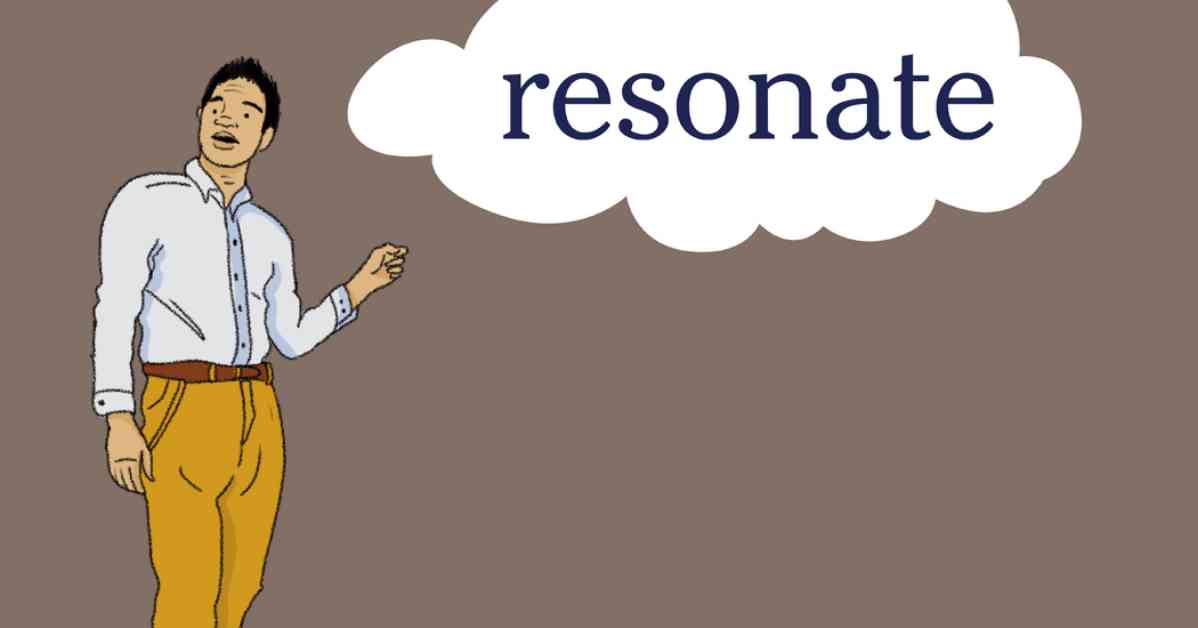Resonate: Exploring the Meaning and Importance of this Powerful Word
The word of the day is “resonate,” a verb that carries a deep and powerful meaning. In the past year alone, this word has made its appearance in 434 articles on NYTimes.com, indicating its significance in various contexts. But what does it truly mean to resonate, and why is it important to understand its impact?
Understanding the Definition of Resonate
At its core, to resonate means to produce a deep, clear sound or to be received and understood. It goes beyond just surface-level communication, delving into the realm of emotional connection and impact. When something resonates with an individual, it strikes a chord within them, evoking a strong response that goes beyond mere words.
Resonate in Real-Life Situations
The power of resonance can be seen in real-life situations, where words and actions have the ability to deeply affect others. Take, for example, the story shared by Mario Koran in the NYTimes article “My Unlikely Path From Jail to Journalism.” In this piece, Koran describes an interview with his correctional officer, highlighting the subtle shifts in power dynamics and the transformative impact of their conversation.
Koran’s experience demonstrates how even in unlikely circumstances, voices can resonate when backed by facts and rigorous research. It shows the potential for connection and understanding, even in situations where authority may seem absolute. This example underscores the importance of resonance in fostering meaningful communication and driving positive change.
Exploring the Importance of Resonance
Resonance plays a crucial role in various aspects of our lives, from personal relationships to professional endeavors. When words or actions resonate with others, they have the power to inspire, motivate, and create lasting impact. Whether in journalism, academia, or everyday interactions, the ability to resonate with others is a valuable skill that can lead to greater understanding and connection.
Subheadings:
The Power of Resonance in Communication
Resonance in Journalism: A Tool for Change
Cultivating Resonance in Personal and Professional Relationships
The Power of Resonance in Communication
Effective communication relies on the ability to resonate with others, to convey messages that go beyond surface-level understanding. When words resonate with an audience, they have the power to evoke emotions, spark inspiration, and drive action. This is especially true in the realm of public speaking, where a speaker’s ability to resonate with their audience can make all the difference in delivering a compelling message.
Resonance in Journalism: A Tool for Change
In journalism, resonance plays a critical role in shaping public perception and driving social change. When a story resonates with readers, it has the potential to spark conversations, raise awareness, and incite action. Journalists who understand the power of resonance can leverage this to tell impactful stories that make a difference in the world.
Cultivating Resonance in Personal and Professional Relationships
Beyond the realm of journalism, resonance is also crucial in personal and professional relationships. When individuals are able to resonate with one another, they build stronger connections, foster trust, and enhance collaboration. Whether in a romantic partnership, a friendship, or a professional setting, the ability to resonate with others is key to building meaningful relationships that stand the test of time.
In Conclusion
Resonate is more than just a word; it is a powerful concept that has the ability to transform relationships, drive change, and inspire action. By understanding the meaning and importance of resonance, we can harness its power to create deeper connections, foster understanding, and make a lasting impact in the world around us. So, let us strive to resonate with others in all that we do, and watch as our words and actions reverberate far beyond our initial intentions.

